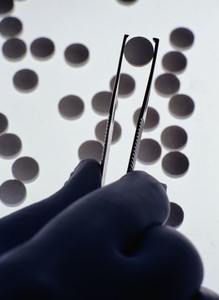A study conducted by researchers from Auburn University and IMPAQ International has found that Medicare# Part D* prescription plans with higher generics use have higher summary star ratings and improved member experience [1].
Higher generics use results in higher Medicare Part D star ratings
Generics/Research
|
Posted 16/11/2018
 0
Post your comment
0
Post your comment

Medicare scores how well plans perform in several categories, including quality of care and customer service. Ratings range from one to five stars, with five being the highest and one being the lowest. Medicare also assigns plans one overall star rating to summarize the plan’s performance as a whole.
Increasing generics use, both to reduce costs and increase drug access, is an option being considered by Medicare prescription drug plans to achieve high star ratings and improve the quality of plan offerings for Medicare beneficiaries.
Therefore, in order to study this, author Natalie Hohmann and colleagues carried out a retrospective, observational study of linked 2011 Medicare Part D star rating data with contract-level proportion of generic drugs dispensed (pGDD) data.
A total of 477 individual Medicare prescription contracts were included, representing 75% of total Prescription Drug Plans (PDPs) and more than 65% of total Medicare Advantage Prescription Drug Plans (MAPDPs) available by the end of 2010.
The contracts were rated according to the Medicare Part D summary and domain star ratings, incorporating a range of quality measures for access, cost, beneficiary satisfaction, and health services outcomes and processes. They were also controlled for contract type and number of beneficiary enrolment.
The results indicated that Medicare Part D prescription plans with a higher pGDD received both higher summary star ratings (adjusted odds ratio 1.08 with 95% confidence interval 1.04–1.12) and higher ‘member experience with drug plan’ domain ratings (adjusted odds ratio 1.07 with 95% confidence interval 1.03–1.11).
The authors therefore concluded that ‘prescription formulary benefit design targeting increasing generic drug use appears to be associated with improved member experience and higher plan star ratings’.
Lead author Natalie Hohmann said that these findings supported the team’s ‘hypothesis that increased dispensing of generic drugs compared with brand drugs may be associated with improved Medicare Part D prescription plan summary star ratings’. She added that ‘this knowledge is useful in making informed decisions regarding the role of generic drug use in improving quality ratings for Medicare Part D prescription plans. In turn, this may afford Medicare beneficiaries with improved access to high quality prescription plans and lower cost medications, thereby improving beneficiary satisfaction and quality of care. Consideration may be given to incorporating proportion of generic drugs dispensed into Medicare Part D star rating measures to improve quality of prescription plans.
#Medicare is a national social insurance program, administered by the US federal government since 1966. It provides health insurance for Americans aged 65 and older who have worked and paid into the system. It also provides health insurance to younger people with disabilities.
*Medicare Part D, also called the Medicare prescription drug benefit, is an optional US federal-government program to help Medicare beneficiaries pay for self-administered prescription drugs through prescription drug insurance premiums.
Related article
Free prescriptions do not always increase use of generics
Reference
1. Hohmann N, Hansen R, Garza KB, Harris I, Kiptanui Z, Qian J. Association between higher generic drug use and Medicare Part D star ratings: an observational analysis. Value Health. 2018;21(10):1186-91.
Permission granted to reproduce for personal and non-commercial use only. All other reproduction, copy or reprinting of all or part of any ‘Content’ found on this website is strictly prohibited without the prior consent of the publisher. Contact the publisher to obtain permission before redistributing.
Copyright – Unless otherwise stated all contents of this website are © 2018 Pro Pharma Communications International. All Rights Reserved.
Most viewed articles
The best selling biotechnology drugs of 2008: the next biosimilars targets
Global biosimilars guideline development – EGA’s perspective
Related content
Japan’s drug shortage crisis: challenges and policy solutions
Saudi FDA drug approvals and GMP inspections: trend analysis
Generic medications in the Lebanese community: understanding and public perception
Community pharmacists’ understanding of generic and biosimilar drugs: Lebanon case study
Generic medications in the Lebanese community: understanding and public perception

Generics/Research Posted 23/01/2024
Community pharmacists’ understanding of generic and biosimilar drugs: Lebanon case study

Generics/Research Posted 08/09/2023
The best selling biotechnology drugs of 2008: the next biosimilars targets








Post your comment